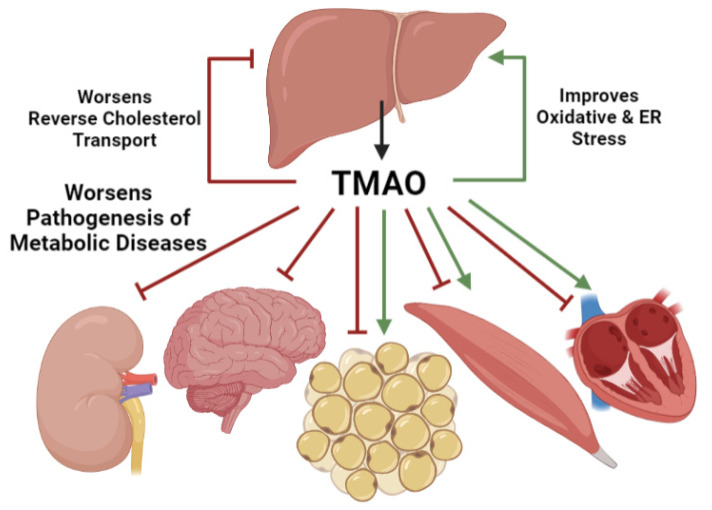Figure 2.
TMAO Effects on Metabolic Tissues. Elevated serum TMAO is generally associated with metabolic diseases and molecular effects are mainly observed in pathogenic and not healthy conditions. Molecular TMAO effects are best defined in hepatocytes where it worsens reverse cholesterol transport and drives non-alcoholic liver disease and gallstone formation. However, TMAO also improves oxidative and endoplasmic reticulum (ER) stress associated with hepatic insulin resistance. While poor renal function drives TMAO accumulation, it in turn aggravates chronic kidney disease. Although direct mechanisms are unclear, TMAO is associated with cognitive diseases including autism spectrum disorder and Alzheimer’s disease. Interestingly, TMAO is liked with increased adiposity associated with obesity and type 2 diabetes (T2D), but it also reduces adipocyte ER stress. In cardiovascular disease research, TMAO may increase or decrease cardiac muscle hypertrophy associated with heart failure. In skeletal muscle, TMAO benefits enzyme kinetics but is debated to drive insulin resistance. Therefore, TMAO effects may be positive or negative depending on the context of metabolic disease and molecular mechanisms are not well understood. This figure was created with biorender.com.

